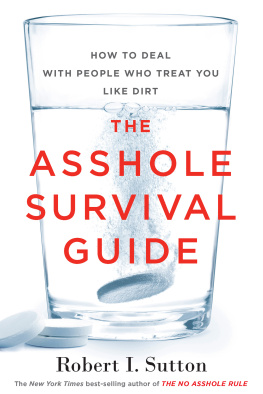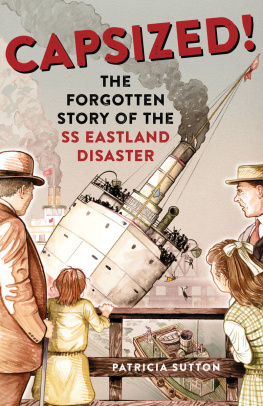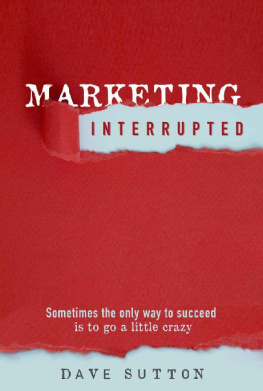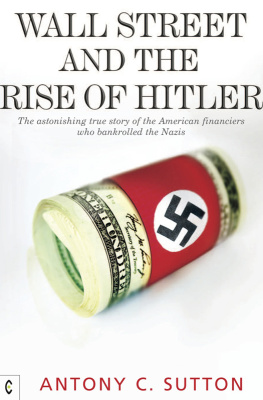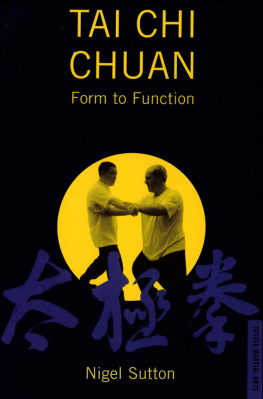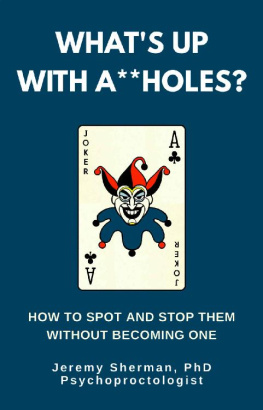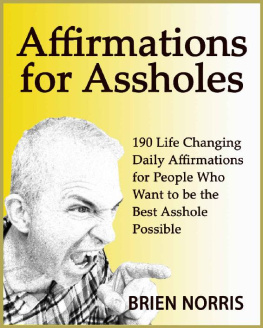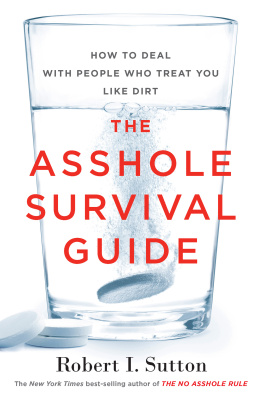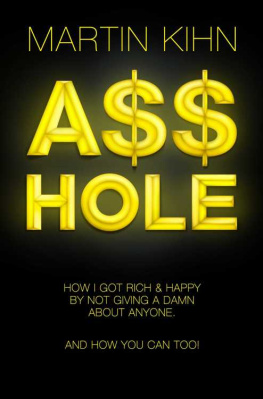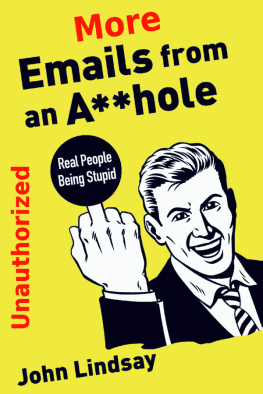Copyright 2017 by Robert I. Sutton
All rights reserved
For information about permission to reproduce selections from this book, write to or to Permissions, Houghton Mifflin Harcourt Publishing Company, 3 Park Avenue, 19th Floor, New York, New York 10016.
www.hmhco.com
Library of Congress Cataloging-in-Publication Data is available.
ISBN 978-1-328-69591-8
Cover design: Michaela Sullivan
Cover photographs Getty Images
Illustration on redrawn by Chloe Foster from a model provided by the author.
e ISBN 978-1-328-69592-5
v1.0817
To Eve, Claire, and Tyler.
Thanks for your laughter and love.
1
Eight Thousand Emails
I WROTE THIS BOOK to answer a question that Ive been asked thousands of times. It takes different forms, but the essence is: I am dealing with an asshole (or a bunch of them). Help me! What should I do? Consider a few examples from my daily dose of asshole emails:
From a physician at a deeply dysfunctional hospital with the most insensitive team chief imaginable:
What is an underling to do? I can put my head down, take care of my patients as best I can, and try to ignore the cruelty, but it is demoralizing to work in such an environment.
A Lutheran pastor in Illinois writes:
A great deal of the work in our church is done by non-paid individuals who, at times, hurt the feelings of fellow volunteers. Do you have any thoughts on what to do with mean people who volunteer their time?
A retired German manufacturing manager asks:
In my working life I have been fired at least three times through the doing of the Arseholes, Sale cons, Arschlcher, Stronzi andtheir like. What advice do I give my son so he doesnt suffer the same fate?
A Silicon Valley CEO writes:
With so many startups and so many Venture Capitalists who lack operational experience sitting on boards, I was wondering if you have done any work or thinking about boardholes (individual bad board members) or entirely dysfunctional boards which one might call doucheboards.
And from a librarian in Washington, DC:
I am knee-deep in Russian assholes. Help!
Someone asks me a version of this question pretty much every day. It arrives in those emails and via Twitter, LinkedIn, and Facebook too. Students, colleagues, clients, friends, enemies, and relatives ask it at gatherings including classes, faculty meetings, weddings, and funerals. Strangers call my Stanford office about once a week to ask it. Ive been asked for survival tips from cashiers at Costco and Walgreens, nurses and doctors at the Cleveland Clinic and Stanford Hospital, flight attendants from airlines including Air France and United, construction workers in San Francisco and Idaho, Uber drivers in Dubai and San Francisco, subway riders in New York City and BART riders in San Francisco, U.S. Marines in Afghanistan, a prison guard in Texas, several Catholic priests, a Jewish cantor (and a cantors wife), fifty or so lawyers, and at least a dozen CEOs. In recent months, Ive heard it from a surgeon in New York, the dean of students at a small liberal arts university, a U.S. Army psychologist, a group of undergraduates in a French university (via Skype), a Stanford police sergeant, my barber Woody, and even my mother.
Its no mystery why they keep asking. It all started when I wrote The No Asshole Rule in 2007 (and a related essay for Harvard Business Review a few years before). I assumed that this asshole stuff would be a brief side trip and, within a year or so, I would return to my work on leadership, innovation, and organizational change. I was wrong. That little book touched a nerve. It took me a few years to accept thatno matter what else I write in my life or any other impact my other work hasI will always be known first and foremost as The Asshole Guy. Some eight hundred thousand readers in the United States and dozens of other countries bought a copy of The No Asshole Rulefar more than my other books. The steady stream of emails, social media, traditional press inquiries, and disturbing, weird, or funny conversations about all things asshole have become parts of my life that I expect, (usually) enjoy, and try to handle with compassion and good cheer.
Many readers were drawn to The No Asshole Rule because they were besieged by jerks who left them feeling like dirtand they sought relief. It does have a chapter on When Assholes Reign: Tips for Surviving Nasty People and Workplaces. The main focus of that book, however, was on building civilized workplacesnot on dealing with assholes. The Asshole Survival Guide is devoted to strategies and tips that enable people to escape from, endure, battle, and force out bullies, backstabbers, and arses.
I developed these strategies and tips over the years. No matter what I was supposed to be working on during the past decade, I spent an hour or two most days thinking, reading, talking, and writing about assholes and their antidotes andnow and thenobserving rude or abusive people in their natural habitats. The result is TheAsshole Survival Guide, which provides the best advice I can muster about how to deal with people who leave others feeling oppressed, demeaned, disrespected, or de-energized. I focus on the workplace. But the lessons here are pertinent to asshole problems faced by volunteers at nonprofits and schools; to jerks in churches, temples, and mosques; and to rude behavior in public places such as subways, airports, malls, and sports stadiums.
The strategies and tips here are shaped by scholarly research on demeaning and disrespectful peoplewhich has grown like crazy in recent years. Google Scholar is a specialized search engine for scholarly books and articles; its become the gold standard that academics use to find rigorous theory and research. A Google Scholar search on abusive supervision between 2008 and 2016 returns 4,910 scholarly articles and books. Abusive customers returns 282, rudeness 16,000, incivility 15,500, bullying 140,000, workplace bullying 11,800, mobbing at work 2,900, road rage 6,680, air rage 369, phone rage 92, verbal aggression 16,500, and microaggression 2,190. Yet my advice isnt meant to reflect an exhaustive and unbiased summary of scientific research on how to deal with jerks. These findings are instructive, but far from definitive and complete. Asshole survival remains more of a craft or skill than a science.
So lessons from these studies are blended with stories and solutions from less scholarly sources. The Asshole Survival Guide draws on assorted corners of the world and the World Wide Webranging from the New York Times to David Kendricks superb post on online behavior, What Makes a Fuckhead? I also weave in lessons from my observations and original interviewsincluding work as a consultant and speaker at varied organizations (e.g., Amazon, Wal-Mart, Gallup, Google, luxury goods purveyor LVMH, KIPP schools, McKinsey, Microsoft, the Cleveland Clinic, Pixar, software firm SAP, Twitter, and a Stanford program for National Football League executives) and fifty or so interviews (and less formal discussions) with people including social workers, baristas at Philz Coffee, nurses at the Stanford Hospital, Disney executives, human resources executives (notably Patty McCord, who was at Netflix for its first fourteen years), and researchers including Professor Katy DeCelles of the University of Torontowho studies the causes of air rage, how prison guards deal with inmates, and the effects of temper tantrums by basketball coaches on players.
This book is also shaped by all those emails about assholes that people send me. I try to save each bit of correspondence in my rather disorganized system of three email folders (NA Stories, Bosses, Asshole Survival Guide) and some sixty subfolders (e.g., Asshole Bosses, Asshole Underlings, Brits, Clients, Asshole Companies, Bystanders, Public Life, Sound Crazy, Italian, Online Assholes, Fighting Back, Got Out, Wrong Way to Fight, Success Stories). Ive kept about eight thousand such emails; most contain some variation of the question that this book tackles. Many of my correspondents also tell me about (successful and unsuccessful) survival methods that theyve tried. And
Next page
